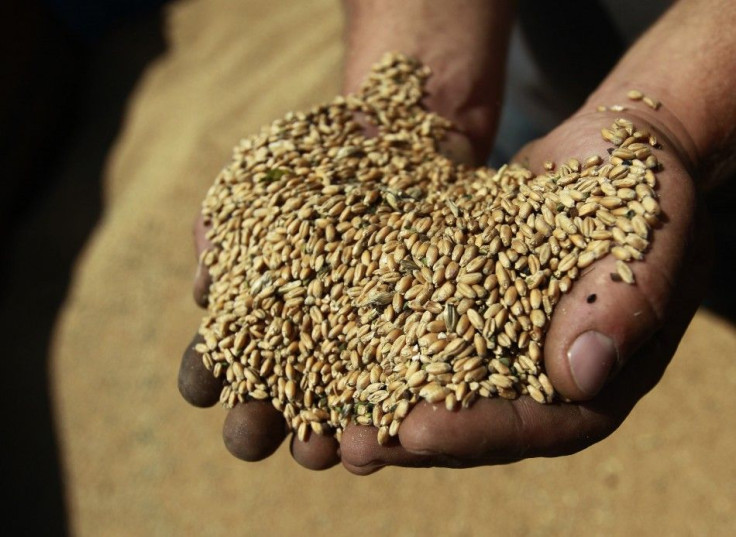Russia Won't Stop Feeding The World, For Now

Russia's food security commission on Wednesday ruled out imposing a ban on grain exports, saying -- for now -- concerns that a serious drought will not cause one of the world's largest wheat producers to deliver a worldwide blow to the price of bread.
Russia is a key supplier of wheat from its three key growing regions of Krasnodar, Stavropol and Rostov. When yields are down, or exports are curbed, it directly impacts the price of bread worldwide, especially in politically unstable countries in North Africa and the Middle East.
Russia's southern "bread basket" has been struck with drought and high temperatures that a Reuters poll estimates will reduce total grain yields by 30 percent in Russia, Ukraine and Kazakhstan.
"We don't need to take any measures now -- I mean measures to intervene on the market and regulate export," Arkady Dvorkovich, Russia's deputy prime minister, told the media at a press conference after the food security meeting. "There are no grounds to ban export."
Russia last banned exports in 2010, in response to its worst drought in 50 years, to mitigate the rise in domestic bread prices. That year its wheat harvest reached 41.5 million tons.
This year the harvest could be lower. SovEcon this week reduced its forecast for this year's Russian wheat harvest to as little as 40.5 million tons.
The export ban had a ripple effect, raising prices on bread loaves in U.K. grocery stores, flatbread from Cairo bakery ovens and roti from Pakistani tandoors. The price of bread is often the subject of political protests in places like Yemen, where staple food prices and political stability are more closely related than they are in countries where consumers spend more on higher priced "downstream" food items, such as meat and foods rich in corn derivatives.
"A Russia wheat export ban would have serious consequences, not just for prices -- recall that global wheat prices leapt almost ten percent the last time Russia imposed such a ban -- but especially for places like Egypt that rely heavily on wheat imports from Russia," said Chris Barrett, a professor of applied economics and management at Cornell University who specializes in poverty and international development.
Russia and the United States, both major suppliers of grains, are suffering record droughts and high temperatures. But in the U.S. the drought has struck corn and soy, while wheat has ducked most of the hit due to the timing and locations of the dry conditions.s Also, the U.S. has a stockpile of wheat grain from previous years. The problem, when it comes to prices, is that U.S. wheat is more expensive to produce, says Jack Watts, senior analyst of the U.K.'s Home Grown Cereals Authority.
"On the wheat side the U.S. wheat harvest hasn't actually been too bad and certainly conditions for the spring wheat crop in the northern states in the U.S. have been in reasonably good condition," Watts told BBC 4's "Farming Today," on Tuesday. "And also what we have in the U.S. is quite an accumulation of grain stocks from previously good what harvests from, say, 2008 and 2009. It's those stocks of U.S. wheat that the world is going to be reliant on in terms of global wheat trade in those key regions."
© Copyright IBTimes 2024. All rights reserved.





















